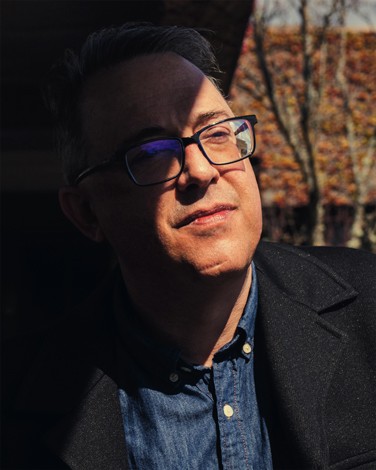We were lucky to catch up with David Mecklenburg recently and have shared our conversation below.
David, thanks for joining us, excited to have you contributing your stories and insights. What’s been the most meaningful project you’ve worked on?
Deukollectrum is an illustrated collection of short prose-poem essays as related through my Unseen Gemini Half and Muse, Ada Ludenow. The conceit is that I illustrate the work she writes, although of course she *is* me in a way as well. The strangest thing though is when she completely deviates from my experiences and creates something new. It really is often “taking dictation” for her as she describes some aspect of her life. But in so doing, I know that with her full access pass to my subconscious, she finds and recreates events and experiences that meant a lot to me. Even if they never happened. So the book, which clocks in at 500+ pages (There are 132 pieces that are all illustrated), is perhaps too personal. It is not that there are secret things, but I think Ada often celebrates the banal thoughts in ways too erudite for everyone else. I think we all have that in us.

Great, appreciate you sharing that with us. Before we ask you to share more of your insights, can you take a moment to introduce yourself and how you got to where you are today to our readers.
I have always wanted to be a writer. My mother is a writer and as a boy I would go along with her to writing groups. I often was elsewhere reading, but the idea of writerly solidarity and publication became ingrained at that point. My extended family were storytellers, by which I mean born liars. The lie was known, but it was more important how well the lie was told. What sort of embellishments and narrative tricks could be used. Insofar as the visual artwork, I had stopped drawing around 6. I’m still not sure why. I only really discovered it again when I began to work on a Zine project with a writing collective in Seattle. Prior to that I had been using Adobe Illustrator and Photoshop to touch up various digital materials for the job I had. but it wasn’t a really creative job. I simply learned how to use those programs in a rudimentary way. So I started doing digitally created illustration for short prose-poems and then I wound up with a 6-year-old housemate who loves to draw (and does it better than I ever will now that she’s older). But working with her opened up a lot of new horizons for visual work and it got me reacquainted with the works that had inspired me. Especially Japanese Woodcuts and German Expressionism.
But the writing is where everything flows from. For many years my work was illustrative: meaning it was tied to a plot or character. Ada, whom I have mentioned earlier was an early subject of course. Unfortunately, while I tied the idea of artistic validation to publication, I didn’t know how to pursue or market my work. I didn’t know how to effectively get into networks that would actively promote my writing and art.
I still suspect much of my work is decorative: the colors or scenes would look good over a wall. The prose work and illustrations are much more important because they take deep philosophical dives into the mutability, the secrets, the unseen currents we float through and the mountains up which we toil with our Sisyphean rocks. My work is more concerned with ontology, memory, and desire. One could say ontology is made up of memory and desire with a thin veneer of “thoughts’ running over the top of it like a varnish.
I’m still unsure of where to go with my work, but I find a tremendous inspiration from David Lynch. Not in subject matter, per se, but rather his method. It should always be remember that David Lynch is a painter first, and his cinema is, as etymologically apropos, a kinetic expression of the images he digs up from his subconscious and perhaps the greater collective unconscious. Craft and, to a lesser extent, marketing are important, but they can never get in the way of calling up the awe of the universe through imagery and narrative. I pay close attention to central images that haunt me. I draw them, and I write about them. I can’t help myself, so I might as well enjoy it regardless of the outcome.

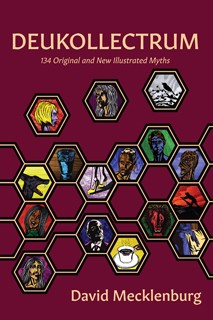
Is there something you think non-creatives will struggle to understand about your journey as a creative?
I’ve written before about Ada, my muse. She is not some real person who inspires me, although she is no doubt based on some people and other figures in my life. A muse speaks, most importantly, which is why Homer called on his Muse to sing about the Wrath of Achilles or the travels of A Complicated Man (Odysseus.)
So there is a constant voice telling me to “write this down.” Since Ada is also the main character and narrative voice, she has developed several lives of her own, depending on which fictional world she chooses to inhabit at any given time. Non-creatives will say “but she’s not real.” The paradox is that I know as much about her: loves, tastes, specific experiences, events, and family and how she thinks about them far better than I do most “real people” in this world. Many of the other creative people I’ve known get it almost immediately and say so. Often with a touch of jealousy.
But I have to keep a persona of normalcy. As social animals, we all do this. I would say with creative people that the parliaments of being underneath those personas have greater access to the conscious mind and as a result, works of art flow out of them. This is the fundamental difference between “content” and “art” although I don’t think a lot of non-creatives actually perceive that difference.
Maybe the best way is to paraphrase Thomas Mann: “A creative is someone for whom creating something is harder than it is for other people.”
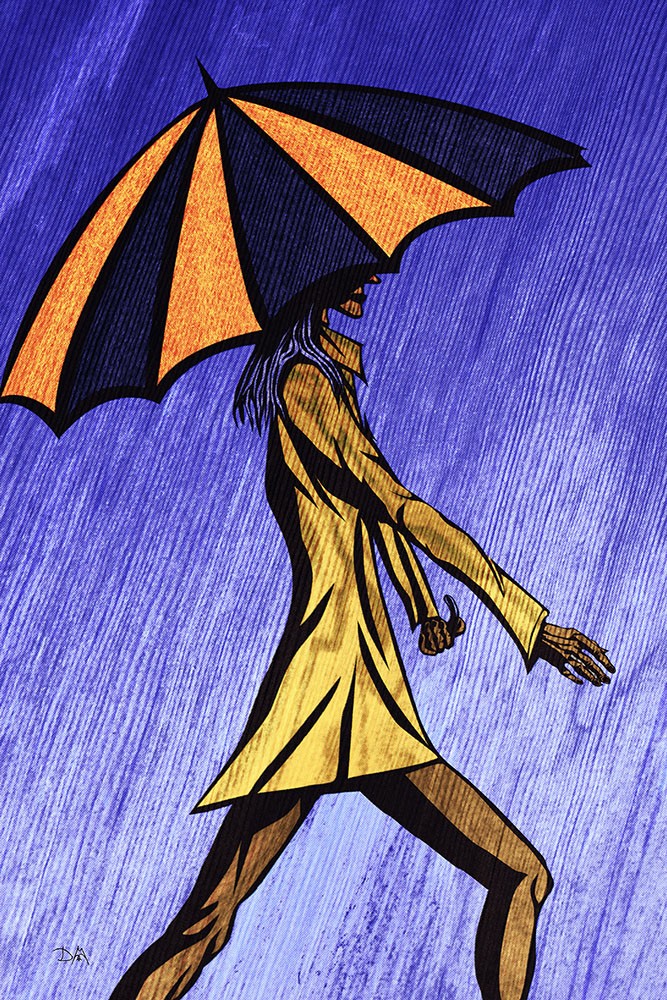
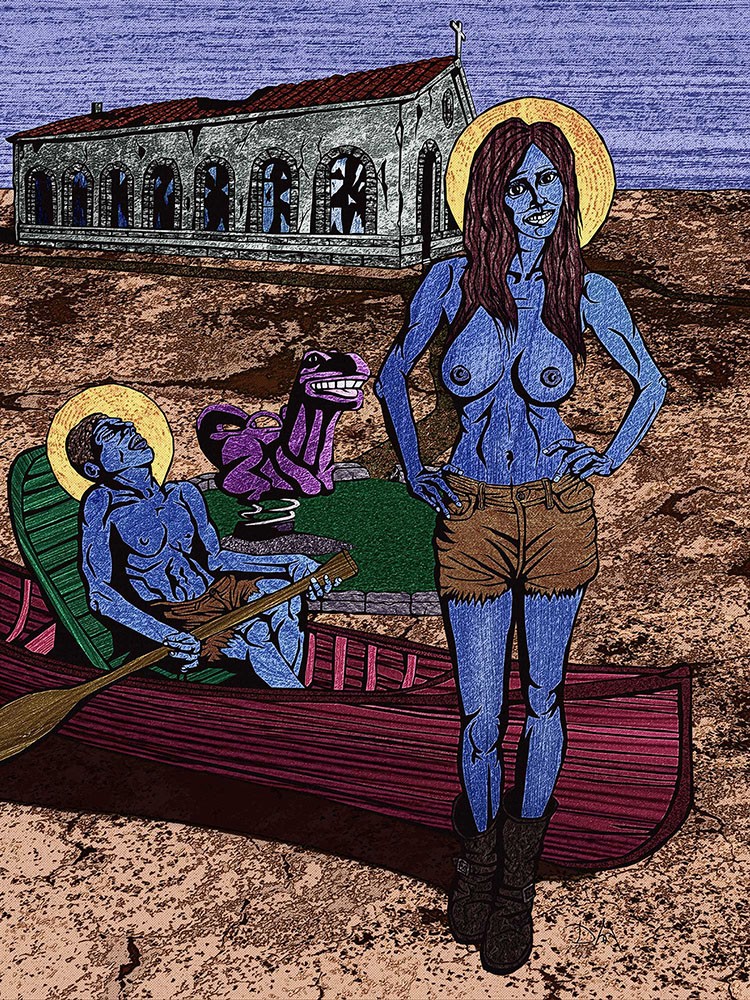
In your view, what can society to do to best support artists, creatives and a thriving creative ecosystem?
This question is particularly problematic in the United States of America. Since the primary validation one can receive in this culture consists of monetizing talent, the money will always determine everything. As I write through these answers, I must confess that perhaps I am not a “real” creative because I gave up on the idea of living comfortably from art. The notion one must live in poverty to do art is a Romantic fantasy and nonsense.
Let us consider the problem of AI. The Corporate Consumer Culture we value so much, along with the stock-holder ruling class would rather not shell out any money at all because it is the most valuable thing. Let us ignore the ironic fact most people at that level don’t even know what to do with all that money and many lack the mathematical brain that can even reliably understand sums that large. So it’s very easy to just get rid of artists in favor of AIs who don’t really have to be paid. As long as the consumer can still be fooled into paying for AI created content (because it is not art, it is curation), what is the point? I can order a pretty picture of a landscape to go over my couch that has been curated by an AI. It can be printed by robots. I can even spend $$ on an NFT so it has collectible value. All of this can now be done without anyone save for a few coders and the CEO management class of a corporation really making any money off it. The single mother and artist who delivers the item as her part-time delivery job? Well, until she is also replaced with automation, she doesn’t have the time to create in order to house and feed her children and get some kind of health insurance.
Ah, it sounds like I’m leaning to socialism. Well, she could perhaps find a Patron, which is the Old Fashioned method artists had to do to survive, but unless she’s incredibly lucky, she won’t really be able to express herself unless it pleases the Patron who pays for the canvases, the musical instruments, the Adobe Creative Suite subscription.
But in my case, perhaps if I didn’t have to worry about keeping my mortgage paid, or my health insurance (graciously provided by my full time day-job employer), or worry about eating just maybe I would find the impetus to create because I know someone out there is valuing my work. It not only speaks to them, they engage with it dialectically. They come up with their own interpretations and meaning.
That may sound like a pipe dream and it probably is. But aside from the intrinsic pleasure of having my artwork and writing come out, I could be content with knowing someone else is reacting to that work.

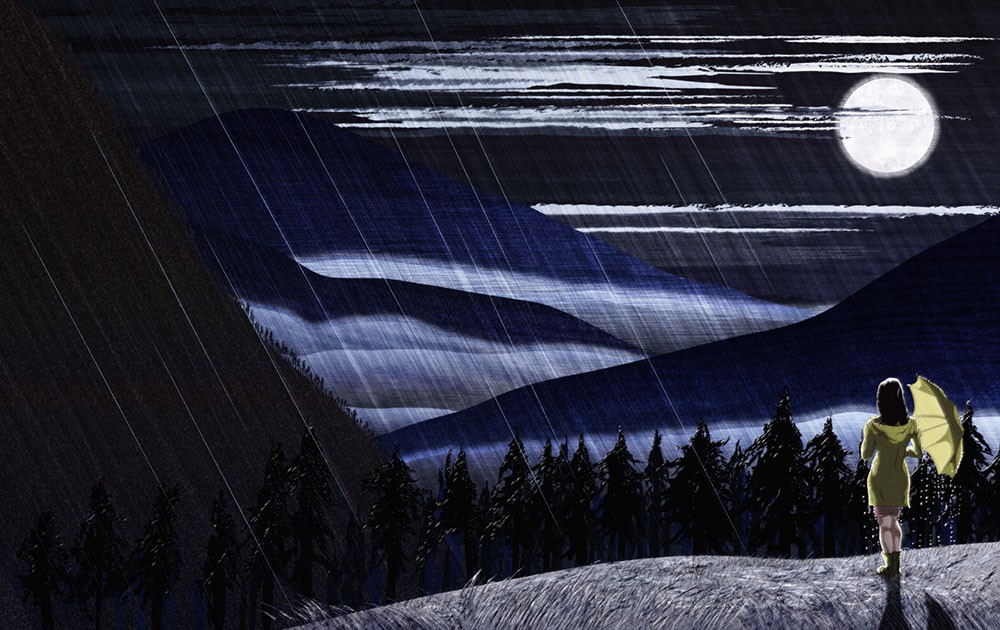

Contact Info:
- Website: www.davidmecklenburg.com
- Instagram: @deukollectrumburg
- Facebook: https://www.facebook.com/davidmecklenburgauthor/
Image Credits
All creative images by David Mecklenburg Author Photo by Elle Hanley


